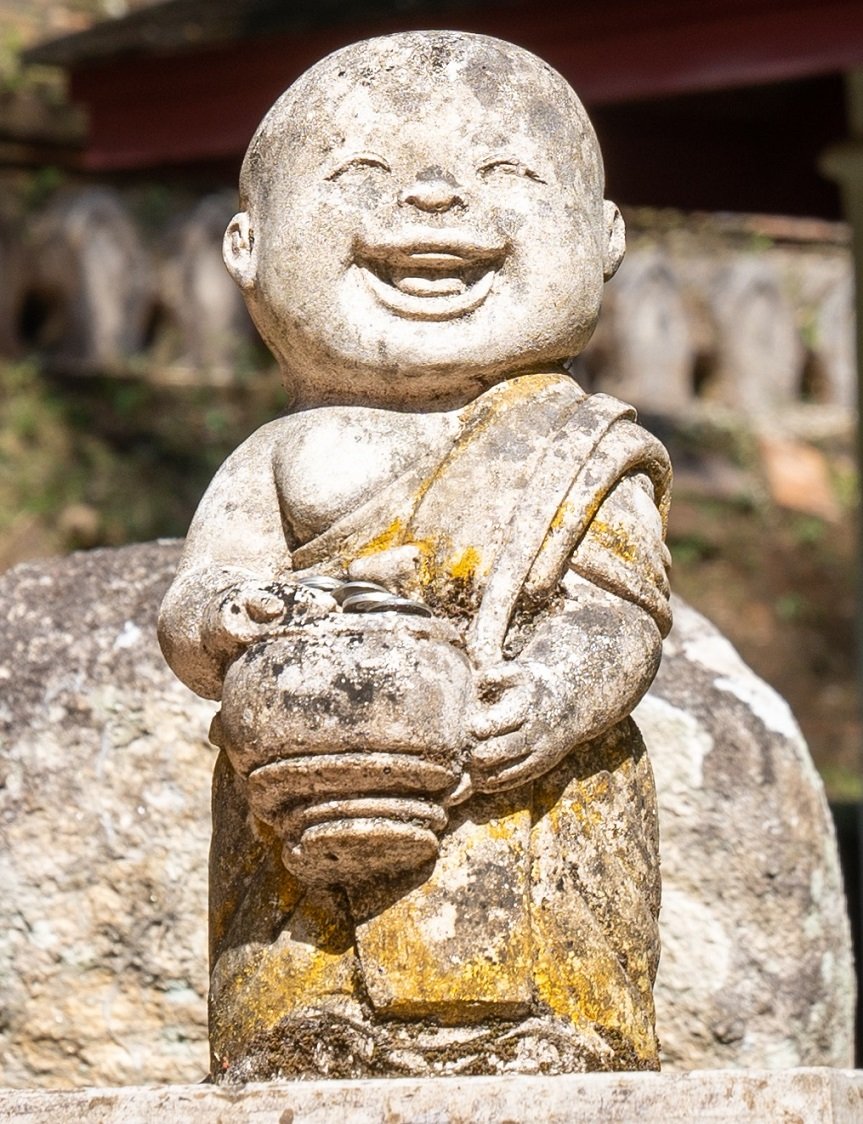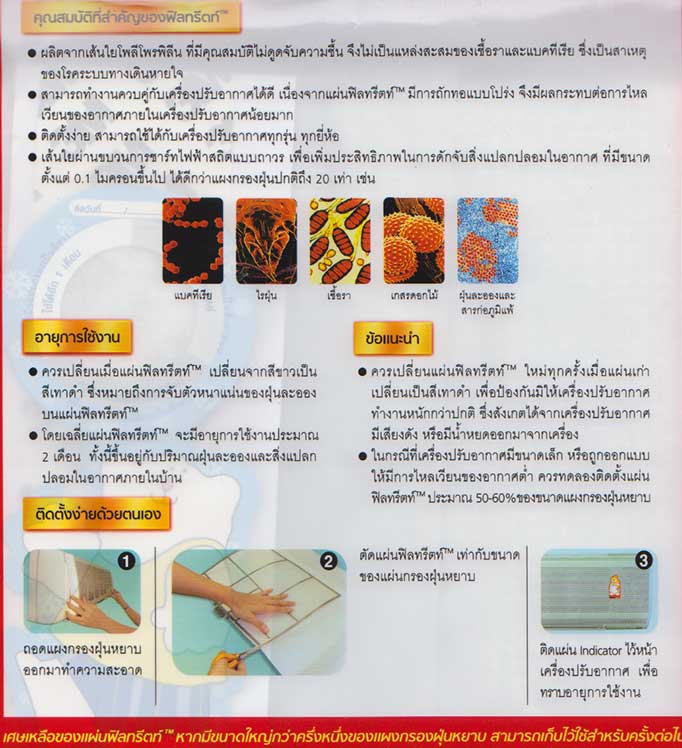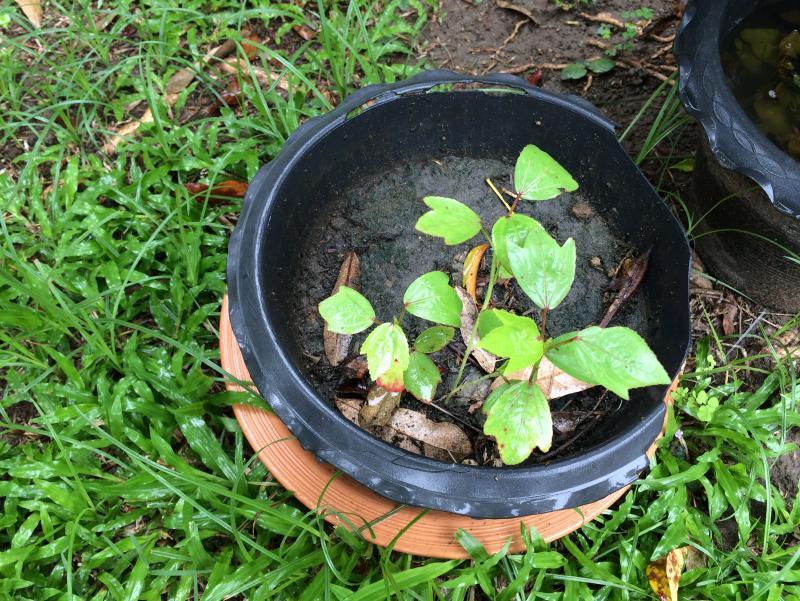- Popular Post

weary
-
Posts
610 -
Joined
-
Last visited
Content Type
Events
Forums
Downloads
Quizzes
Gallery
Blogs
Posts posted by weary
-
-
Curious to hear from anyone who has tried them?
-
Pun Pun Airport is more than a year old, possibly more than 2 years, even. It's all a bit of a blur, lately. :)
It is run by the crew that ran the original Pun Pun at Wat Suan Dok. The Pun Pun at the new location inside Wat Suan Dok is operated by others and the menus are different.
There used to be a Pun Pun near the foot of Doi Suthep on Suthep Road, too, which has closed now. In my opinion, only the airport branch lives up to the standard of the original. -
- Popular Post
- Popular Post
Has anyone else noticed the new blue buses downtown? I just found out they are testing out a new bus service until tomorrow, then they will be out of commission during Songkran, and the regular service will start on the 17th - apparently the fee will be 20 baht. The official bus map is only in Thai, but I found this unofficial English translation on Facebook.
-
 2
2
-
 2
2
-
CheGuava, well spotted about Chiang Rai. The media needs to figure out what is going on. If CR can enforce the burning ban, there is no reason CM could not do the same thing.
-
 1
1
-
-
On 7/6/2017 at 2:49 AM, wpcoe said:
You got me. Anybody care to translate?
The photo in the instructions for step 2 seem to indicate I've been doing it correctly. I notice that the YouTube video seems to be produced by 3M/Filtrete in India. Maybe the laws of physics are different over there?
Something that has always made me curious, too: There is that small "indicator" piece which has a circle of filter material a couple cm in diameter. You're supposed to put it on the front of the air con case front, like in picture #3 to let you know when the filter material inside the unit is dirty enough to be replaced. i.e. When you see the circle of filter material turn gray/black, the filter material inside is the same. How likely is it that the relatively tiny area of filter material on the indicator will match the condition of the inside which is covered 100%? Again, wouldn't the vast majority of the dirty air enter the air con unit *around* the indicator, leaving it relatively white/clean?

In the middle section, the lower bullet point in the right hand column is relevant to the discussion, but offers no in-depth explanation:
"In case the air conditioning unit is small, or designed for low air circulation, we recommend trying to install Filtrete on approx. 50-60% of the dust filter surface."-
 1
1
-
-
Thank you both!
If I understood correctly, that means if I time my entry into Thailand to get 90 days so that it occurs before I only have 6 months left on the passport, I *can* actually hold off getting the new passport until my planned trip back to Europe in March 2019? (That trip will be straight back to my home country from Thailand.) -
When applying for a 1 year multiple non-O (marriage) in Savannakhet, how many pages minimum must be left in the passport?
I have 12 pages left and my passport expires in July 2019. However, I will probably get a new passport in March 2019. Does that seem OK? -
While we are on the subject of PayPal:
I ordered an unfinished guitar body from the US, and paid in advance using PayPal.
To avoid speculations about a scam, this is an established luthier and seller, who has a registered business in the US, and has been active for 10+ years on eBay with thousands of transactions and a near 100% rating. He has a net presence using his real name and maintains a proper web page for his business - I've already verified that the eBay, FB and webpage/company email all lead to the same person.
He has finished and packaged the body, but when he tries to print the shipping label with my address (my real address, connected to my PP account), PayPal throws an error and says the street address is incorrect. This is the same address that I've successfully received eBay stuff on for 5 years. The difference is that this time, the transaction is only using PayPal.
The seller and I have tried to troubleshoot the address by moving info from one line to another, by removing things like the 'T.' for tambon, etc. but nothing works.
Has anyone experienced anything similar, and if so, what was the reason?
Also, do you have a solution that worked for you?
-
Thanks for all replies!
I've been monitoring eBay and tried to post on Panasonic's online sites in case somebody with a compatible spare mainboard would turn up, but unfortunately nothing. So I suppose I'll have to go with a LED TV this time. Samsung has a 55-incher at Lazada that sells for just under 22,000, so that'll have to do. Current budget won't allow an OLED.I was told about the possibility of getting reimbursed from the PEA by a friend, but it's valuable information for others who may find this thread later, so thanks for putting it out there, CMKiwi. The stumbling block was that you need to correctly state exactly when said power spike happened, or they won't accept responsibility. And I did not discover the problem for some time as it was raining (no use of washing machine) and I rarely have time to watch TV anymore. So that's that.
-
Quote
สวรรค์ can't be compared with heaven because Buddhist don't go there when they die.
That's not entirely true. In Buddhism, สวรรค์ is a possible rebirth destination. Here is the lowdown on the 31 planes of existence in Buddhist Cosmology.
http://www.accesstoinsight.org/ptf/dhamma/sagga/loka.html -
A power surge fried my washing machine and my Panasonic plasma TV a couple of weeks ago. The washing machine is now repaired (replaced a fried circuit board), but the plasma TV can not be repaired by Panasonic, because the failed part (a mainboard, also called 'A-board') is not manufactured or available anymore.
Since this TV cost 100,000 baht, and since the actual plasma panel is still functional, and the picture quality was still great up until the day it died, it seems a shame to just throw it away. If worse comes to worst, I will though.
But I've seen used mainboards for other plasmas available on eBay, and I wonder whether some dusty little repair shop or recycling place in Bangkok might actually sit on a functional mainboard for this model.So my question is, does anyone have any ideas where I might be able to find a mainboard? The other option would be, a place that could troubleshoot and repair the mainboard using smaller parts.
The TV model name is TH-50PY800MT. Manufactured in 2008... so not exactly the newest TV on the block.
I've already googled around a fair bit, and found out that unfortunately, equivalent Panasonic plasma TV models in other world regions (EU, US, UK) have a different configuration of input ports on their mainboards, so those mainboards won't work.
I'm in Chiang Mai by the way, so I can't just pop out the door in Bangkok and look. -
The two music stores on Chang Khlan Road are MIW (stands for Musical Instrument Workshop) and Maximum Sound.
My personal fav is Maximum Sound. I have ordered pedals and bought other items from them a number of times. They are always helpful and the prices have been reasonable. -
On 7/2/2017 at 5:32 PM, lexilis said:
Also one in Central Festival mall. Don't know the name but I think its on the 3rd floor. It's pretty good for strings and such. Might be more expensive than the others.
Music Collection. A chain store, here is their national website: http://www.music.co.th/ They carry some quality brands, for example G&L guitars. I was a regular customer at their previous location on the Superhighway and the staff were great, second only to Maximum Sound on Changklan Rd. Haven't visited the new locatio in Central Festival, so not sure what they're like now.
-
As for the passport copies, do they need the stamp pages or just the passport page with photo and personal details?
-
Regarding woman in a cowboy hat:
The dish she sells is khao khaa moo (pork leg over rice), and she does it well; as well as any khao khaa moo I have ever had. Interestingly, an old guy a couple of stalls away does an equally good one, if you would like to compare. However, it is a food stall, and a no-bells-and-whistles dish, so base your expectations around that, rather than thinking it must be magic because it was included by Bourdain in his show. -
Really depends on what aspects of the meal and overall experience you value. There are so many variables - atmosphere, service, price, portion size, freshness, etc.
Anyway, some places I like:
Lum Lum at Meechok Plaza. The interior is quite plain, but the (Korean) food is great.Ginger/The House by the moat. Why? Mainly because of the charmingly quirky interior design, and because they *sometimes* create amazing food. (Other times have been minor disasters though, but I still go now and then because I like the atmosphere and because I still remember the times where they did get the food right). Not cheap.
Pun Pun on the Hang Dong road (driving from the Airport Plaza intersection towards Hang Dong, look out for the Michelin Man and turn into the next small soi. Pun Pun is on your left). Reason it makes my list: their organic vegetables are the most flavourful and fresh of any restaurant in CM. So if you enjoy the taste of really fresh vegetables (many people don't, or drown them in dressing), this is a good place to try.
Lapin. French/Mediterranean style (and possibly a few fusion dishes, can't quite remember). Located near Nawarat Bridge. Not cheap, semi-fancy image. Good food.
Huean Soontari - Northern Thai and Thai food with Northern Thai guitar songs a la Jaran Manopet. Mainly for the nice atmosphere by the river, and the local connection - food ok but not fantastic. -
Confirming it's business as usual. I ordered yesterday, same procedure and price as before.
-
None of the Tesla models available are self-driving cars. They use a slightly more advanced version of cruise control, that needs constant driver attention, which is clearly stated in the manual.
If you're reading book, you are the problem. Not the car.
-
-
A few seedlings have started to grow in a flower pot in my garden, and I am not sure what it is.
I occasionally take the seeds from fruit and herbs and put them in pots randomly just to see if something starts to grow. But I cannot remember what seeds might be in this one.
As far as I have seen, the leaves do not resemble the leaves of any plants or trees in this garden or in the neighbours' gardens.[placeholder for picture to be uploaded]
-
For somebody to be able to do that, they would need to have a) the necessary understanding of Thai law and vocabulary
 the knowledge of what those terms correspond to in English. Not many people fulfill those requirements.
the knowledge of what those terms correspond to in English. Not many people fulfill those requirements.On top of that, there may not be an exact description of charges available in the documents. I.e. we cannot be 100% sure that the police have been specific about the charges.
That being said, you could try asking using this sentence:
สิ่งที่ผมต้องการคือ ข้อหาตามกฎหมายที่ตำรวจได้ระบุไว้ในเอกสาร ไม่ใช่รายละเอียดเกี่ยวกับเรื่องที่เกิดขึ้น ขอขอบคุณล่วงหน้ากรับ
Back translated, approximately: What I need are the legal charges that the police have specified in the documentation, not the details of what happened. Thank you in advance.
I am assuming you are male. If not, we need to change the personal pronoun.
-
Most of the Burmese centres don't expect foreign meditators to get involved in this, there are some in Malaysia if you don't want to go to Myanmar.
Insight meditation centres in the West don't have it.
In Thailand though it's usually expected to some degree the only place I can think of that doesn't have it is Wat Kow Tahm.
I've heard of Wat Koh Tahm, but it's one of those places that says you can smile at people during the retreat, this was happening at Suan Mokk and it's not my style either as it's a distraction
Do you have the names of the places in Malaysia?
Have you tried to experiment with what happens when you don't feed your preferences? 'My style' risks leading in the wrong direction if you are shooting for stream entry.
-
Of the options provided in the OP, options 1 and 2 are both correct for the intended meaning. The word order in 3 is awkward.
สิบปีที่ผ่านมา - this is more like 'during/for the past 10 years' - it indicates a continuous duration rather than a specific point in time.
For more formal language - writing, speeches, news reading etc., adding a เมื่อ in front is good, but I typically don't hear this in everyday conversations.
-
I suspect this is a direct response to Thailand having had their air safety status downgraded by the FAA recently.
What will actually change remains to be seen.




Hat's off to Chiang Mai Immigration!
in Chiang Mai
Posted
I believe that 'overstay' form is the general 'I am aware of the fact that there are overstay penalties' form that seems to go with each application since earlier this year.